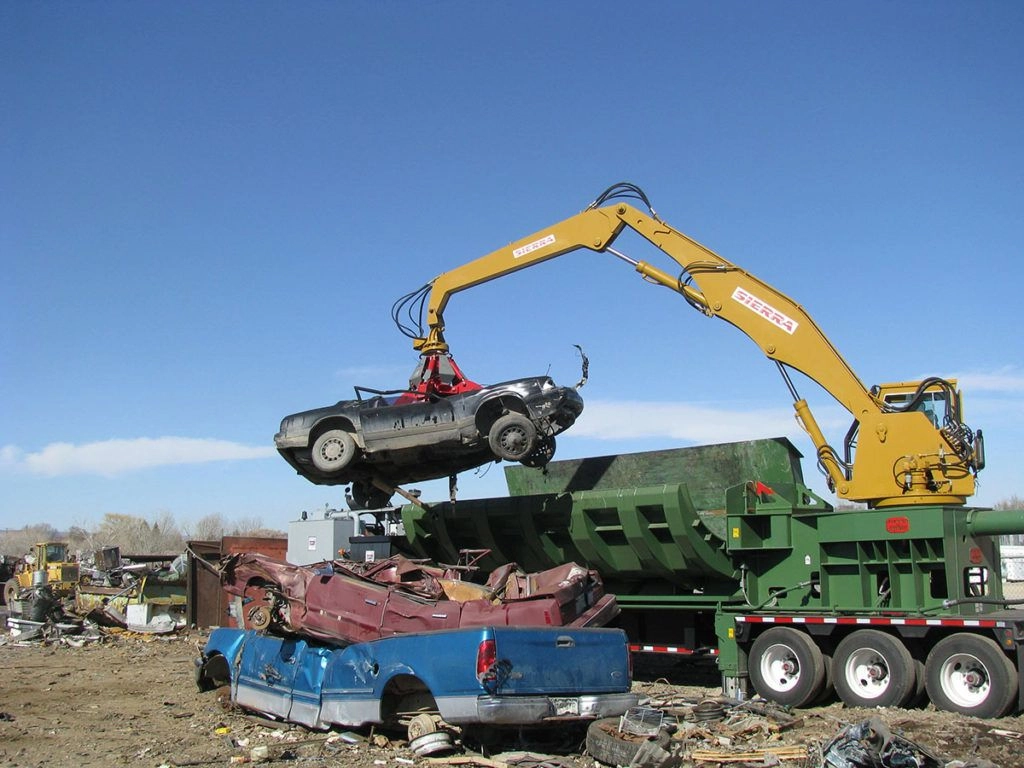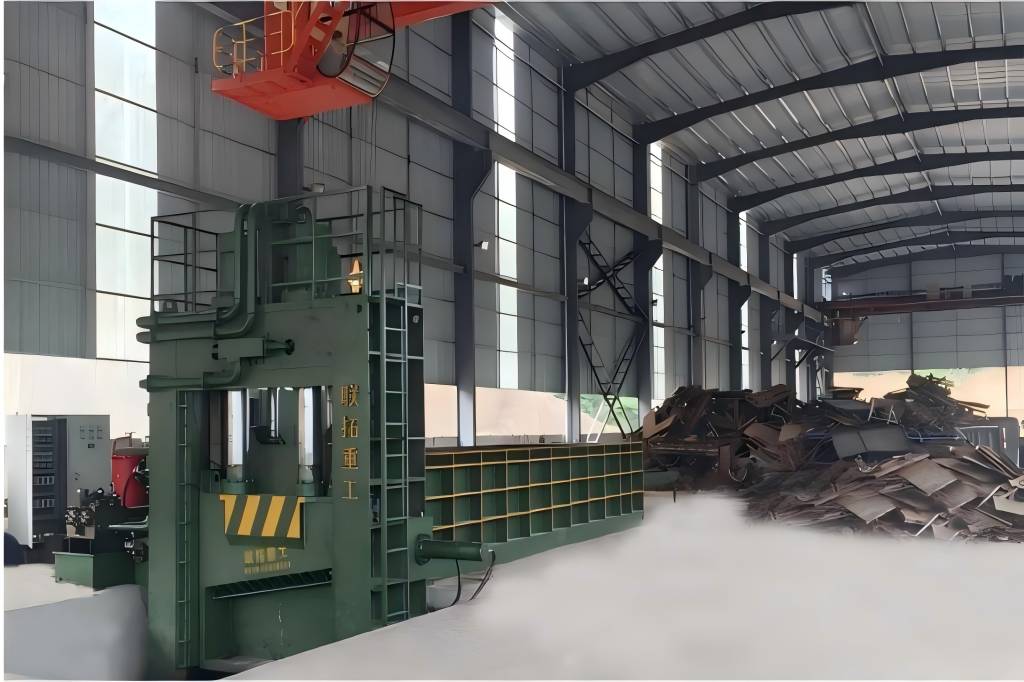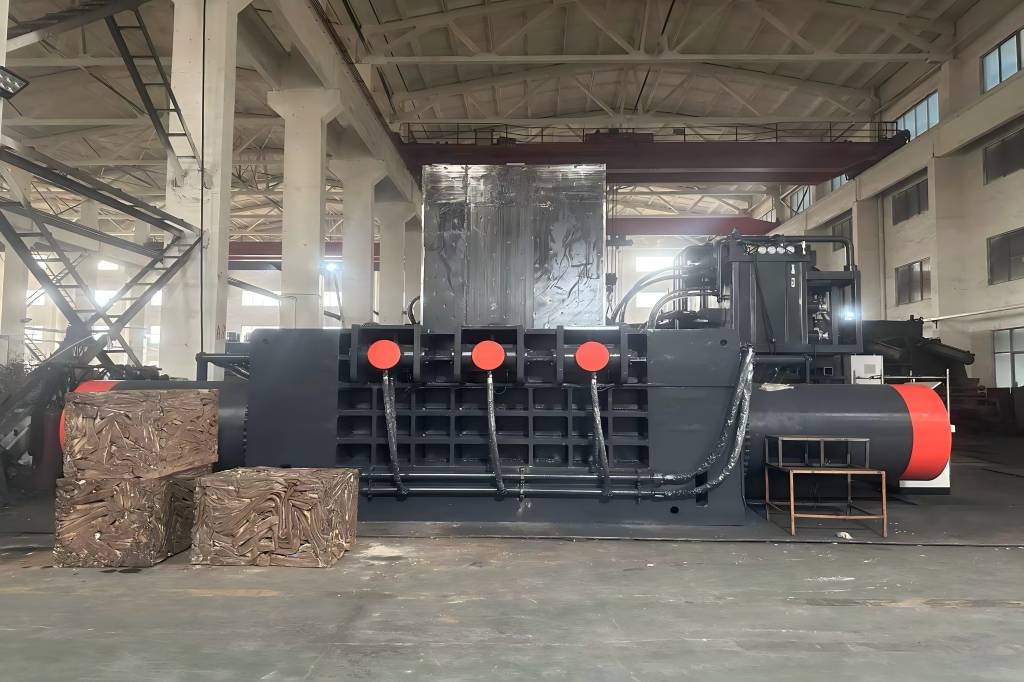In the metal recycling sector, efficiency and sustainability are paramount. Alligator shears emerge as a critical solution, significantly streamlining the cutting process. These tools accelerate operations and bolster safety and cost-efficiency, thereby playing a crucial role in enhancing recycling efforts and achieving sustainability objectives.
This guide introduces the vital role of high-efficiency alligator shears in modernizing metal recycling, emphasizing their impact on operational productivity and environmental conservation.



What are Alligator Shears?
Alligator shears are indispensable in metal recycling, addressing a critical need for efficient, reliable, and safe scrap metal cutting. Traditional cutting methods often lack speed, accuracy, and safety, which poses challenges to operational efficiency and worker safety. Alligator shears fill this gap by offering a robust solution capable of efficiently handling various metal types and thicknesses. Their necessity stems from several key advantages: Enhanced Efficiency: These shears significantly reduce processing time by enabling quick and precise cuts, allowing recycling facilities to handle larger volumes of scrap metal more effectively. Improved Safety: Designed with operator safety in mind, alligator shears reduce the risk of accidents associated with manual cutting methods. Safety features and ergonomic designs ensure a safer working environment. Cost-effectiveness: The ability to process more material in less time, coupled with reduced maintenance and operational costs, makes alligator shears a cost-effective choice for metal recycling operations. Adopting alligator shears is a strategic move for any metal recycling business aiming to enhance its operational efficiency, safety standards, and profitability. Their role in modern recycling cannot be overstated, as they provide a direct path to achieving more sustainable and efficient recycling practices.Application Scenarios
Alligator shears serve crucial roles across various sectors due to their versatility and efficiency:1. Scrap Yards
These are the primary environments where alligator shears shine, efficiently processing everything from light metals to heavy steel beams. They enable facilities to quickly size material for processing and shipment, significantly enhancing workflow efficiency.2. Automobile Recycling
In the context of automobile recycling, alligator shears help dismantle vehicles by cutting through metal frames and parts. This capability is essential for separating valuable metals from other materials, streamlining the recycling process.3. Construction Debris
Alligator shears are crucial for managing construction and demolition waste, cutting through rebar, steel pipes, and other materials. This not only aids in recycling but also in reducing landfill waste.4. Industrial Scrap
Industries that produce metal waste as a byproduct of their manufacturing processes use alligator shears to cut down scrap for recycling. This practice not only reduces waste but also recovers valuable materials.5. Custom Fabrication
Shops specializing in custom metalwork often use alligator shears to make quick, clean cuts in various metals, aiding in the creation of custom pieces or the modification of existing ones. Through these applications, alligator shears are an invaluable tool across multiple sectors, significantly contributing to the efficiency and sustainability of operations. Their adaptability and performance remain a go-to solution for any scenario requiring precise and efficient metal cutting.Buying Guide
When considering the purchase of an alligator shear for your metal processing needs, several key factors should guide your decision to ensure you select the most suitable equipment:1. Assess Your Needs
Evaluate the volume and type of metal you plan to cut. Understanding your operational requirements will help you determine the size and power of the alligator shear you need.2. Check Cutting Capacity
The shear cutting force and blade length must be adequate to handle your typical materials. Ensure the model you choose can easily cut through the metal types and thicknesses you work with.3. Durability and Construction Quality
Look for shears built with high-quality materials capable of withstanding the rigors of your operation. Durable construction minimizes downtime and maintenance costs.4. Safety Features
Safety should be a top priority. Opt for models with built-in safety features like blade guards, emergency stop buttons, and stable operation platforms to protect operators.5. Ease of Maintenance
Consider the availability of parts that are easy to maintain and replace. Choosing machines with accessible components and supports can significantly reduce potential operational interruptions.6. Manufacturer Reputation and Support
Research manufacturers and select one with a solid reputation for quality and reliability. Good after-sales support, including customer service and warranty, is crucial for addressing any issues.7. Cost-Benefit Analysis
Finally, the initial investment will be weighed against the expected efficiency gains, operation cost savings, and potential revenue increase. The right alligator shear should offer a good return on investment by improving your operation’s efficiency and productivity.




